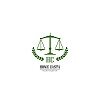Best Nonprofit & Charitable Organizations Lawyers in Vietnam
Share your needs with us, get contacted by law firms.
Free. Takes 2 min.
Or refine your search by selecting a city:
List of the best lawyers in Vietnam
![[DDC] DONG DU INTERNATIONAL ACCOUNTING, TAXES & LEGAL CONSULTING GROUP HCMC VIETNAM](https://lawzana.com/storage/firms/2690/17617306202399.jpg)
About Nonprofit & Charitable Organizations Law in Vietnam
Nonprofit and charitable organizations play a crucial role in Vietnam's social and economic landscape. They encompass a wide range of entities, including non-governmental organizations (NGOs), social enterprises, and charitable funds. In Vietnam, these organizations are regulated under various legal frameworks aimed at ensuring accountability, transparency, and efficiency in their operations. The legal landscape is primarily governed by the Law on Associations, Decree 93/2019/ND-CP, and other related regulations. Understanding these laws is essential for anyone involved in or planning to establish a nonprofit or charitable organization in Vietnam.
Why You May Need a Lawyer
Engaging a lawyer can be vital for navigating the complexities of establishing and operating a nonprofit or charitable organization in Vietnam. Common situations where legal expertise is beneficial include:
- Registering the organization with appropriate authorities, which involves navigating legal requirements and ensuring compliance with local regulations.
- Structuring the organization and drafting foundational documents, such as charters or bylaws, that comply with Vietnamese laws.
- Adhering to financial and tax regulations, including securing tax-exempt status and ensuring proper financial reporting.
- Managing donor relations, such as drafting and reviewing agreements to ensure compliance with legal standards and donor requirements.
- Addressing disputes that may arise internally or with external parties, requiring legal intervention or conflict resolution strategies.
Local Laws Overview
Several key aspects of local laws pertain to nonprofit and charitable organizations in Vietnam, including:
- Registration and Establishment: Organizations must register with the Department of Home Affairs. Proper documentation, including a charter and list of founding members, is necessary.
- Operational Compliance: Organizations must adhere to periodic reporting requirements, demonstrating activities consistent with their registered mission.
- Financial Management: Nonprofits are required to maintain transparent financial records and may be subject to audits by the Ministry of Finance.
- Funding and Donations: Restrictions exist concerning foreign donations, which require government approval to ensure alignment with national interest and security policies.
- Taxation: Certain nonprofits can apply for tax exemptions or reductions, provided they meet specific criteria set by tax authorities.
Frequently Asked Questions
What is the process to register a nonprofit organization in Vietnam?
The process involves preparing required documents such as a charter, a declaration of establishment, and details of founding members, then submitting them to the Department of Home Affairs for approval.
Are nonprofits subject to taxation in Vietnam?
Yes, although certain nonprofits may qualify for tax exemptions or reductions if they meet specific legal criteria.
Can foreign NGOs operate in Vietnam?
Yes, foreign NGOs can operate in Vietnam, but they must obtain a registration certificate and are required to follow regulations applicable to foreign entities.
What activities are nonprofits allowed to conduct?
Nonprofits in Vietnam can engage in a variety of activities that further their goals, provided they are consistent with the organization's charter and Vietnamese law.
Is there a difference between a nonprofit and a charitable organization?
Yes, while all charitable organizations are nonprofits, not all nonprofits engage in charitable activities. Charities focus specifically on philanthropic goals.
How can nonprofits receive funding from international donors?
International funding can be received, but it generally requires governmental approval to ensure it aligns with legal and national interests.
What are the reporting requirements for nonprofits in Vietnam?
Nonprofits must submit annual reports detailing their activities and financial status to relevant authorities. These reports should demonstrate compliance with their mission and legal obligations.
What are the penalties for non-compliance with nonprofit regulations?
Penalties can include fines, suspension of operations, or even revocation of registration for severe non-compliance cases.
Can a nonprofit organization be involved in profit-making activities?
Yes, but the profits must be reinvested into the organization's mission and goals rather than distributed among members.
How are disputes within a nonprofit resolved?
Disputes may be resolved internally through governance procedures outlined in the organization's charter, or externally through mediation or legal action if necessary.
Additional Resources
For additional support, consider utilizing the following resources:
- Ministry of Home Affairs: Oversees registration and regulation of nonprofit organizations.
- Vietnam Union of Friendship Organizations (VUFO): Assists foreign NGOs with registration and compliance.
- Local law firms: Specialize in nonprofit law and provide consultancy services.
Next Steps
If you find yourself in need of legal assistance for a nonprofit or charitable organization in Vietnam, consider the following steps:
- Consult with a local attorney specializing in nonprofit law to understand your specific needs and legal obligations.
- Gather all necessary documents and information relevant to your organization's legal and financial status.
- Engage with local authorities or professional legal services to navigate any challenging processes, such as registration or compliance audits.
- Stay informed about changes in relevant laws and regulations by subscribing to legal updates or joining nonprofit networks.
Lawzana helps you find the best lawyers and law firms in Vietnam through a curated and pre-screened list of qualified legal professionals. Our platform offers rankings and detailed profiles of attorneys and law firms, allowing you to compare based on practice areas, including Nonprofit & Charitable Organizations, experience, and client feedback.
Each profile includes a description of the firm's areas of practice, client reviews, team members and partners, year of establishment, spoken languages, office locations, contact information, social media presence, and any published articles or resources. Most firms on our platform speak English and are experienced in both local and international legal matters.
Get a quote from top-rated law firms in Vietnam — quickly, securely, and without unnecessary hassle.
Disclaimer:
The information provided on this page is for general informational purposes only and does not constitute legal advice. While we strive to ensure the accuracy and relevance of the content, legal information may change over time, and interpretations of the law can vary. You should always consult with a qualified legal professional for advice specific to your situation.
We disclaim all liability for actions taken or not taken based on the content of this page. If you believe any information is incorrect or outdated, please contact us, and we will review and update it where appropriate.
Browse nonprofit & charitable organizations law firms by city in Vietnam
Refine your search by selecting a city.
















